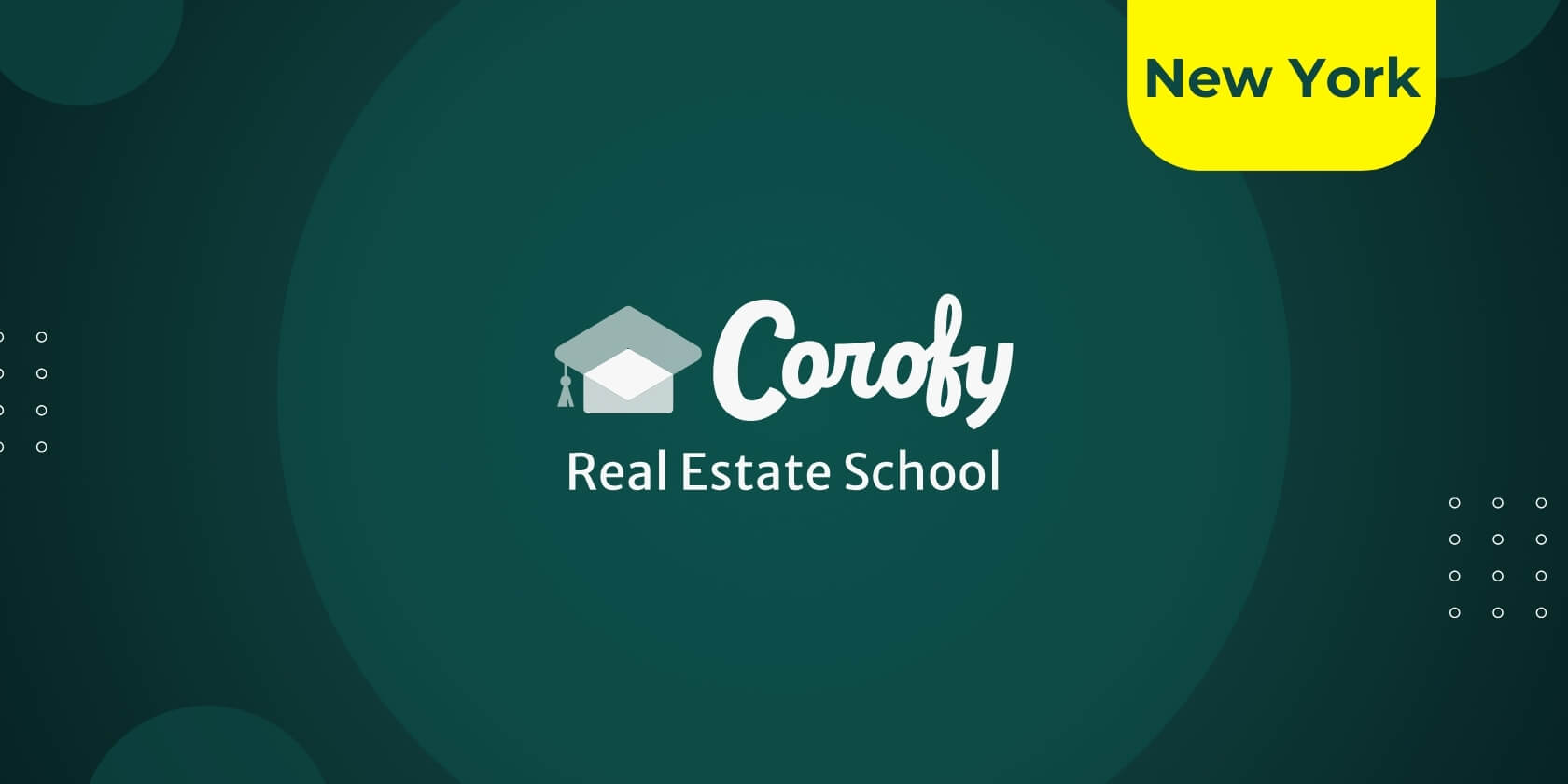In the dynamic world of New York real estate, one intriguing question often arises: as a licensed real estate agent, can you represent yourself in transactions? The answer is multifaceted and hinges upon both legal stipulations and practical considerations. Whether you’re stepping into the market as a buyer or a seller, the level of insight and expertise required is substantial, and acting as your own representative carries both opportunities and challenges.

Representing oneself in a real estate transaction allows for a direct control over the nuances of the deal, potentially leading to savings on commission fees. However, this approach demands a comprehensive understanding of the market and the intricacies of real estate law. As an agent, you also need to consider the full spectrum of responsibilities that come with representing yourself, from negotiating the sale to managing the closing process, all while adhering to the ethical standards expected within the industry.
Key Takeaways
- As a licensed agent in New York, you have the ability to represent yourself in real estate transactions.
- Self-representation requires in-depth market knowledge and understanding of legal obligations.
- While self-representation can offer commission savings, it necessitates a critical evaluation of the complexities involved.
If You’re an Agent, Can You Represent Yourself in New York?

As a real estate agent in New York, you hold the capability to represent yourself in property transactions, whether you’re buying or selling. It’s essential to comprehend that while self-representation is legal in New York, it comes with certain responsibilities.
Here are some key points to consider:
- Disclosure: You must disclose your status as a real estate agent to all parties involved. Full transparency is obligatory to avoid conflicts of interest.
- Agency Role: If you are serving as your own agent, you effectively become a dual agent. This role has specific regulatory requirements, ensuring that you’re adhering to ethical and legal standards.
- Real Estate License: Keep in mind that maintaining an active and valid real estate license is critical. This licensure is a testament to your expertise and professional standing in the field.
If you find yourself unsure about the intricacies of representing yourself, seeking educational resources can bolster your understanding. Opting for instruction from a fully online real estate school, such as Corofy, can provide you with updated knowledge tailored to New York’s specific real estate regulations.
Self-representation can carry benefits such as saving commission fees, yet be aware of the inherent challenges. It requires you to navigate the transaction with professional detachment, balancing your interests as an owner with the ethical duties of an agent.
Should you choose to utilize an online school for guidance, ensure it aligns with your educational needs and supports New York’s legal requirements. With the right preparation and knowledge, you can successfully facilitate your own real estate transactions.
Why Would They Represent Themselves?
When you’re a real estate agent in New York, you may choose to represent yourself when buying or selling property for various reasons. Here are a few key motives:
- Commission Savings: By acting as your own agent, you save on the commission that would typically go to the buyer’s or seller’s agent. In New York’s competitive market, these savings can be substantial as commissions are often a significant percentage of the sale price.
- Control and Autonomy: Representing yourself grants you direct control over the transaction process. This autonomy allows you to manage negotiations and advocate for your own interests without the potential for miscommunication through a third party.
- Insider Knowledge: Your expertise may give you an edge in understanding the nuances of the market and leveraging that knowledge for a better deal.
- Fiduciary Responsibility: Serving as your own agent ensures that your fiduciary duties — the highest ethical and legal relationship of trust with the property — align with your personal interests.
However, it’s important to consider the responsibilities and potential conflicts of interest that can arise. As an agent, you must disclose your status to all parties involved. Additionally, while you may be adept at navigating transactions for clients, handling your own can introduce unique challenges, particularly when emotion is involved. Partnering with a brokerage that supports agents in self-representation, like Corofy, may provide additional resources and guidance to manage these situations effectively.
Is Representing Yourself in the Real Estate Transaction a Good Idea?
When you consider representing yourself in a real estate transaction in New York, be aware of the complexities and challenges that could impact the sale of your home.
You’re Statistically Likely to Sell Your Home for Less
Without the expertise and negotiation skills of a professional, you may end up selling your home for less than market value. Experienced agents understand the New York market and how to position your property efficiently.
Your Perception of Your Home’s Value Is Subjective
Your connection to your home can cloud your judgment, leading to an overestimated value. Sellers often need an objective assessment to align with the market conditions.
It’s Difficult to Separate Your Taste from Your Buyers
Personal taste in decor and style can be a stumbling block. What’s appealing to you might not resonate with potential buyers, and an agent can help stage your home to appeal broadly.
Your Emotions Can Interfere with Negotiations
Negotiating a home sale is a delicate process. Emotions can lead to hasty decisions or conflicts, while an agent can navigate these with professional detachment.
Each Phase of the Sale Process Will Take You Longer
Each step, from listing to closing, will likely take you longer due to the learning curve. An experienced agent navigates these phases with efficiency and has a fiduciary duty to your best interests.
You’d Need to Clear Your Schedule to Manage Responsibilities
Time is a resource. Managing showings, responding to inquiries, and handling paperwork require a substantial commitment that could disrupt your daily life.
You’d Need to Navigate Piles of Legal Paperwork
Real estate transactions come with extensive legal documentation. Missteps here can lead to problems down the line, whereas agents are adept at handling these with accuracy.
You Don’t Have Professional Liability Insurance If You’re Unlicensed
If unlicensed, Sellers don’t have liability insurance. Mistakes could therefore carry significant personal risk, unlike with a licensed professional who is covered.
It Takes Time and Money to Obtain a Real Estate Agent License
Securing a license involves both time and money. While Corofy provides a fully online course to earn your New York real estate license, it’s a process that requires your dedication and investment before even beginning to sell your home.
Should You Get a Real Estate License to Buy or Sell Your House?
When considering a real estate transaction in New York, you might wonder if obtaining a real estate license is worth the effort to buy or sell your own home. There are notable benefits to being licensed, such as potential savings on commission fees, gaining access to comprehensive market data, and having control over the process.
Pros:
- Commission Savings: By representing yourself, you could save the typical 3% listing agent’s commission on the sale of your home.
- In-depth Market Knowledge: As a licensed agent, you will gain valuable insight into the real estate market, which could help in making informed decisions.
Cons:
- Time Investment: Acquiring a license requires time and effort, including completing pre-licensing courses through a school like Corofy, passing the state licensing exam, and meeting continuing education requirements.
- Potential Conflicts: Be mindful of dual-agency situations where your interests as an owner and agent may conflict.
With a license, managing the agency relationship—that is, your obligation and fiduciary duties as an agent—becomes crucial. In a dual-agency real estate transaction, where you act as both the seller and the agent, thorough disclosure is necessary to ensure transparency and adherence to state regulations.
If the transactional process and the responsibility to represent yourself in a complex legal environment seem daunting, attending a fully online real estate school like Corofy might be your first step. It’s about balancing the autonomy and potential savings against the legal and ethical intricacies inherent to New York’s real estate transactions.
Final Thoughts on Real Estate Agents Representing Themselves
When you, as a real estate agent in New York, consider representing yourself, it’s imperative to weigh both the pros and cons. On one hand, you have the expertise and access to resources that can streamline the process. You’re likely familiar with what makes an enticing offer, and understand the intricacies of closing a deal which could work to your advantage.
However, you should carefully consider potential conflicts of interest. Representing yourself might pose a challenge if you’re also the listing agent. The key is to maintain transparency and uphold the trust clients place in you. Moreover, you must keep confidentiality in mind; protecting client information is paramount, whether the transaction involves you or others.
In terms of education and keeping up with the latest regulations and market trends in New York, you could consider courses from Corofy, a digital real estate school, to refine your knowledge. Such continuous learning can amplify your capabilities as a self-representing agent and ensure you’re providing top-notch services.
Ultimately, whether self-representation is beneficial boils down to your individual situation. Evaluate your comfort with negotiation, your ability to separate personal emotions from business transactions, and your readiness to manage the extra workload. If you decide to embark on this path, ensure you’re well-versed in New York’s real estate laws and ethical guidelines. Remember, as a self-representing agent, you carry the responsibility to demonstrate the same level of professionalism as you would when representing a client.
Frequently Asked Questions
Navigating the intricacies of real estate law in New York, you may have several questions regarding agents representing themselves. This section addresses your most common queries specifically for New York State scenarios.
Is it legal for real estate agents to represent themselves in a property transaction in New York?
Yes, in New York, it is perfectly legal for real estate agents to represent themselves in property transactions. They must be licensed and follow the same procedures as when representing other clients.
Are real estate agents in New York entitled to commission when buying or selling their own property?
Real estate agents in New York are entitled to commission on their own property’s purchase or sale. They must adhere to appropriate disclosure practices.
What are the disclosure requirements for real estate agents representing themselves in New York?
Agents must disclose their status as licensed professionals in the transaction, ensuring transparency in their deal. The New York Real Property Law § 443 outlines specific disclosure requirements.
How does self-representation of a Realtor affect a deal’s transparency to other parties in New York?
Self-representation must be disclosed to maintain transparency with other parties. This ensures all parties are aware of the agent’s dual role in the transaction.
Can a real estate agent in New York earn commission on their own purchase or sale without representing another party?
An agent can earn commission on a transaction involving their own property without representing another party, provided they comply with all relevant legislation and ethical standards.
What are the legal limitations for a New York real estate agent when acting as both client and agent in a transaction?
Legal limitations for agents include strict adherence to disclosure requirements and ethical guidelines designed to prevent conflicts of interest and ensure fair dealings within the transaction.



